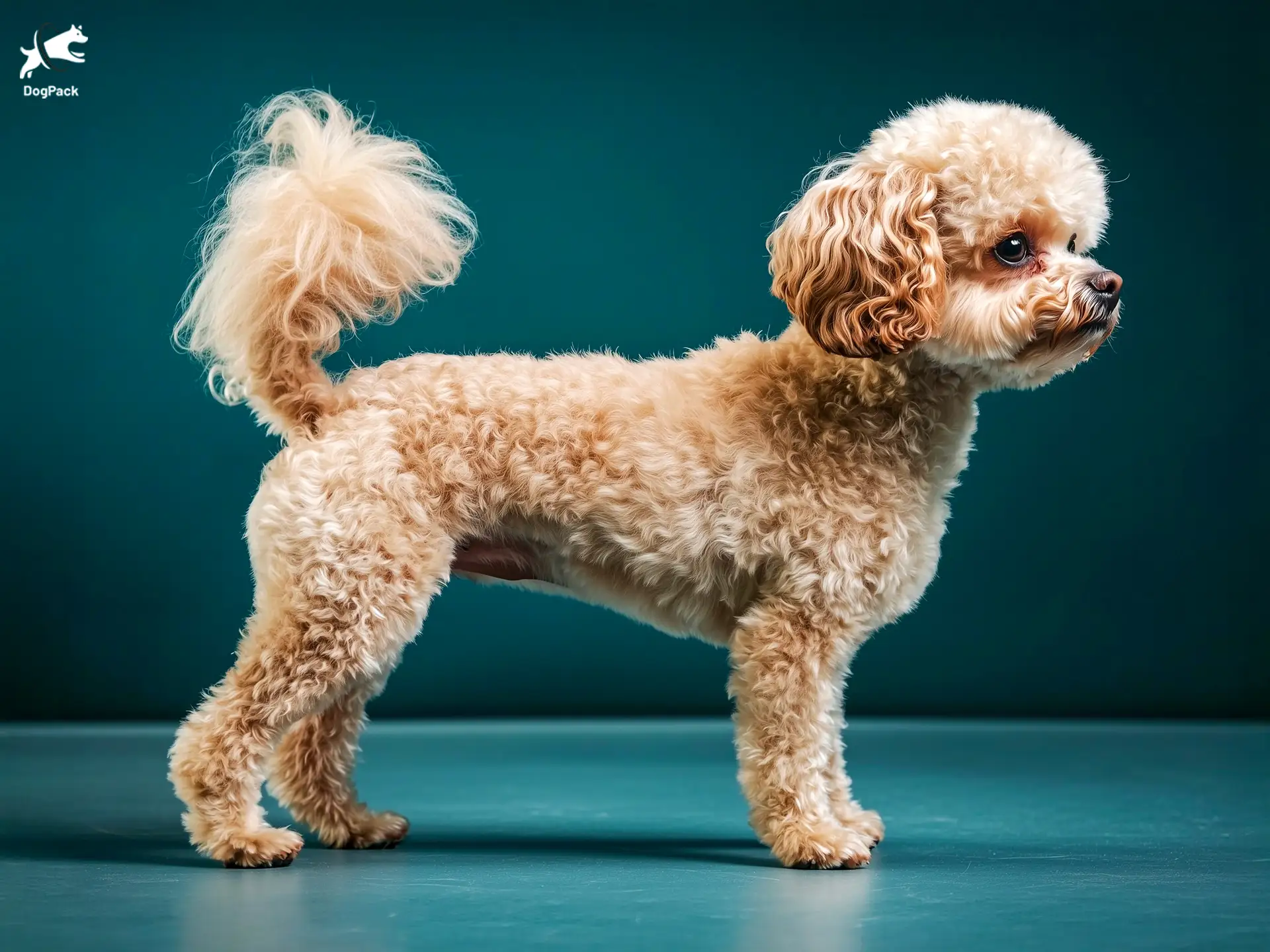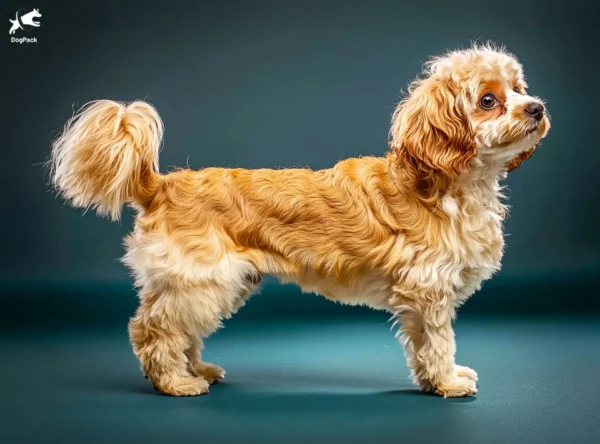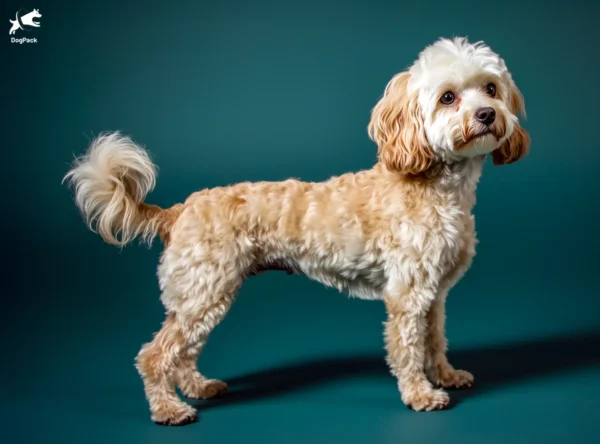Poochon Dog Breed Info & Overview
These curly-coated charmers bring together the intelligence of the Poodle with the affectionate nature of the Bichon Frise, making them ideal companions for families and singles alike. While small in size, they pack a big personality that’s equal parts lively and loving. Anyone seeking a loyal lapdog and playmate rolled into one is bound to be won over.
Characteristics
Pictures
Breed History
Unlike centuries-old breeds, this mix has a relatively modern history. Created by pairing a Miniature or Toy Poodle with a Bichon Frise, these pups first appeared in the United States toward the late 20th century. Breeders aimed to produce a companion dog with a low-shedding coat, capitalizing on the popularity of other “designer” hybrids like the Labradoodle.
While neither parent is especially new—Poodles have their roots in Europe, and the Bichon Frise traces its lineage to the Mediterranean region—the specific blend offers a fresh spin on small dog companionship. The energetic spirit from the Poodle meets the sunny Bichon disposition, resulting in a friendly, adaptable companion. Over time, their cuddly appearance has made them a well-loved choice.
Today, you won’t find the Poochon recognized as an official breed by the major kennel clubs, but that hasn’t stopped enthusiasts from embracing these sweet dogs. They’ve earned a loyal following among city dwellers and suburban families alike. Although they’re modern by canine standards, their lovable traits and hypoallergenic potential keep this pint-sized pooch in high demand.
Temperament, Personality
These pups are often described as perky and fun-loving, always ready for playtime or a snuggle on the couch. They adore being near their humans, sometimes following family members from room to room. Friendly by nature, they typically greet strangers with a wagging tail, though early socialization can help ensure they remain confident in new environments.
Their sociable personality often extends to other pets, including cats—provided everyone is introduced carefully. In fact, they typically do well in multi-pet households if given proper time to adjust. Known to be gentle with children, they can thrive in a bustling family setting, though supervision is recommended for very young kids to prevent any accidental rough handling.
Because of their eagerness to please, these dogs relish interactive play and learning new tricks. They’re not usually shy, but any standoffish behavior usually melts away with friendly encouragement. While every dog is unique, a well-raised Poochon is apt to be delightfully cheerful, making them a top pick for those wanting a sweet-natured companion that brightens the home.
Physical Characteristics
One glance at this breed, and you’ll notice a plush, curly coat that begs to be petted. The coat texture can range from loose waves to tighter Poodle curls, but in all cases, it tends to be quite soft and low-shedding. Beneath that fluff, they have a sturdy, compact build, reflecting both sides of their parentage.
Their faces often sport a rounded “teddy bear” appearance, complete with dark, expressive eyes and a button-like nose. Ears typically flop downward, framing the face in an endearing way. Many owners find themselves smitten by the breed’s adorable head tilt, a habit that seems to say, “I’m listening—now hand over the treat!”
Size-wise, they stay firmly in the small-dog category, usually weighing well under 20 pounds. This petite stature allows them to adapt to apartment living without feeling cramped. Despite their smaller frame, these pups can have a surprisingly athletic stride, eager to prance around on walks or engage in a quick game of fetch.
Health Issues
Although generally robust for a small hybrid, these dogs may inherit conditions common to their parent breeds. Patellar luxation is one such issue, where the kneecap can momentarily slip out of place. Regular vet visits can catch early signs, and keeping your dog at a healthy weight helps reduce stress on joints.
Some individuals might experience dental issues, especially if their mouths are more crowded or if a sweet tooth leads to plaque buildup. Routine brushing and professional cleanings go a long way in preventing oral complications. Eyes can also be sensitive, so owners should keep them clean and watch for signs of irritation.
Allergies—whether environmental or food-related—can occasionally crop up, manifesting as itchy skin or recurring ear infections. A balanced diet, along with consistent grooming, often helps alleviate mild flare-ups. Overall, when given proper preventive care, your Poochon will likely remain sprightly. Always consult with a veterinarian to tailor checkups and any necessary screenings to your pup’s individual needs.
Grooming Needs
Because of their curly coat, these dogs require regular brushing—ideally a few times a week—to keep tangles at bay. A slicker brush or a comb specifically designed for poodle-type coats is particularly effective. Consistent grooming ensures their coat remains soft and free of painful mats, which can form easily if neglected.
Professional grooming sessions every six to eight weeks help maintain the ideal coat length and shape. Trimming around the eyes and paw pads can improve comfort and visibility. Many owners opt for a “teddy bear” clip, which highlights their round face and perpetually puppy-like look, but options abound based on personal preference.
Bathing frequency typically falls around once a month or when playtime adventures leave them muddy. Use a mild, hypoallergenic shampoo if you want to minimize skin irritation. Nail trims, ear cleaning, and dental care should be part of the routine. A regular schedule keeps this breed looking fresh and feeling great, ready for its next cuddle session.
Exercise Requirements
Despite their relatively small stature, these dogs enjoy short bursts of activity throughout the day. A daily walk of 30 minutes can help burn off pent-up energy. Quick indoor play sessions—like chasing a favorite squeaky toy—are also a hit. Their moderate energy level means they’re happy with simple but consistent exercise routines.
Fetching a lightweight ball or practicing doggy agility is a fantastic way to keep them mentally engaged. Because they thrive on attention, interactive games double as bonding time. A game of “find the treat” engages both their nose and their inquisitive nature. Just remember to adjust exercise levels for puppies and seniors to prevent overexertion.
When it’s cold or rainy, puzzle toys and indoor obstacle courses provide mental stimulation without a major workout. This breed typically handles moderate strolls, but they’re not built for strenuous hikes. If you do venture out on bigger outings, take breaks for water and rest. Ultimately, the Poochon is happiest with a balance of brief play and cozy downtime.
Training Tips
Thanks to their Poodle lineage, these pups are often quick studies. They respond well to reward-based methods, looking forward to praise or the occasional treat. Consistency is key: short, focused sessions of five to ten minutes work best. Harsh tactics can make them skittish, so positive reinforcement keeps training fun and productive.
Socialization from an early age helps them navigate new experiences without fear. Introduce different people, sounds, and environments in a gentle, positive manner. Training basic commands like “sit,” “stay,” and “come” fosters good manners, especially valuable in multi-pet or family environments. Stay patient; while bright, they can sometimes get distracted if they sense something more entertaining nearby.
Some owners use clicker training to channel that Poochon intelligence effectively. Break tasks into small steps, and celebrate mini victories. If housebreaking proves tricky—common in many small breeds—set a consistent schedule. Patience, routine potty breaks, and quick praise whenever they get it right will minimize accidents. A well-trained companion is truly a joy to live with.
Nutrition, Diet
Because they’re small, portion control is crucial for maintaining a healthy weight. Most adult Poochons do well with about ½ to 1 cup of high-quality dry kibble daily, split into two meals. Seek a formula specifically labeled for small breeds, often featuring smaller kibble pieces that are easier on their petite jaws.
Look for balanced dog food with ample protein from sources like chicken or fish, and moderate fats to support their active lifestyle. Omega-3s are beneficial for maintaining that soft, curly coat. While treats are an excellent training tool, overindulging can quickly pack on pounds. Aim for nutrient-dense snacks like small freeze-dried meat bites.
If you notice signs of food sensitivities—such as itchy skin or frequent upset stomachs—consider a limited-ingredient diet to pinpoint triggers. Fresh fruits and veggies like carrots or blueberries can serve as occasional treats. Always introduce dietary changes gradually to avoid tummy troubles. By tailoring meals to their size and activity level, your pup stays fit and bouncy.
Adoption, Breeders
Rescues dedicated to small designer dogs occasionally have Poochons looking for homes. You can also connect with owners through the I Love My Poochon Facebook Group for rehoming leads and support. If you’re set on a puppy, research breeders carefully—health testing and a clean, loving environment should always be non-negotiable.
Reputable breeders will happily discuss health screenings for both Bichon Frise and Poodle parents. Early socialization, temperament, and living conditions should all be part of the conversation. For additional help, the Poochon Puppies For Rehoming group is another community worth exploring when searching or seeking advice.
Meeting a puppy in person, when possible, helps you evaluate the breeder’s standards and the dog’s behavior. For adopters, ask about any known medical history, prior training, and daily routines. Whether adopting or buying, the goal is a well-matched dog who fits your lifestyle. Choosing the right source is the foundation of a strong, lifelong bond.
Family Pet?
Countless owners praise how smoothly these pups fit into family life. They adapt easily to moderate noise and are usually patient with respectful children. Because of their gentle nature, kids often gravitate toward this breed, enjoying cuddle sessions and playful chases around the living room. In return, the dogs bask in the extra attention.
Even though they’re small, it’s wise to teach children proper handling techniques—gentle strokes rather than rough play. Supervision is recommended for very young kids who haven’t mastered boundaries. Provided everyone is calm and considerate, your household should find these dogs to be a cheerful addition, often acting as the family’s official “welcoming committee.”
They’re also known to do well with other pets, from fellow canines to resident felines. Gradual introductions and positive reinforcement help maintain a peaceful environment. While every dog has individual quirks, a well-socialized Poochon tends to be sociable and affectionate. All in all, their size and friendly temperament make them top contenders for a beloved family companion.
Right For You?
Before falling for those soulful eyes, consider your lifestyle. This breed thrives on human interaction, so constant travel or extended absences might cause anxiety. They love to be underfoot, thriving in a home where someone’s around to play, train, or cuddle. If you have the time and energy for routine care, they’ll repay you with devotion.
Apartment living is usually no issue if there’s a daily walk or two. Families, couples, singles, and retirees can all make excellent matches, provided their schedules allow for bonding and grooming. Keep in mind the initial costs—professional grooming can add up. For those willing to invest in companionship and coat care, these dogs are a joy.
If you’re after a low-shedding, affectionate buddy who’s eager to join in on life’s simple pleasures, this mix might be the ideal fit. They generally handle gentle kids, adapt to other pets, and enjoy moderate play. Ultimately, deciding on a Poochon means welcoming a bubbly, people-oriented companion into your day-to-day routine.
Conclusion
When you weigh up the Poochon’s friendly temperament, low-shedding coat, and moderate exercise needs, it’s no surprise they continue to grow in popularity. These bright-eyed pups reward their owners with loyalty and an abundance of affection, so long as they receive proper attention and care in return. If you’re craving a playful, cuddly companion that fits well into a variety of lifestyles, this hybrid might be your perfect match.
FAQs
-
Can a Poochon’s coat color change as they mature?
Yes, it’s common for a Poochon’s coat to lighten or shift in tone over time, especially in apricot or cream puppies. This color fade is inherited from both Poodle and Bichon genetics and typically happens in the first two years.
-
Is the Poochon more prone to tear staining than other breeds?
The Poochon can be prone to tear stains, particularly in lighter-coated dogs. This results from shallow eye sockets or watery eyes. Keeping the face clean and feeding a high-quality diet can help reduce discoloration over time.
-
How does a Poochon behave during travel or long car rides?
A well-socialized Poochon tends to travel well, especially when introduced to car rides early. They adapt quickly to routines and enjoy staying close to their owners, making them a popular companion for road trips and even airline travel.
-
Do Poochons tend to bond more with one person?
The Poochon typically bonds closely with a primary caregiver, though it remains friendly with the entire household. Their affectionate, Velcro-like nature makes them particularly loyal to the person who provides most of their care and attention.
-
Are Poochons good for households with mild allergies?
Yes, the Poochon’s low-shedding coat makes them a better option for homes with mild allergies. While not fully hypoallergenic, they produce less dander and saliva proteins, especially with regular grooming and a clean living environment.
Breed Ratings
The Poochon’s keen mind and Poodle heritage make training a breeze, especially with positive reinforcement.
They love games and interactive toys, always ready for fun with family members at a moment’s notice.
The Poochon enjoys brisk walks and short play sessions but also appreciates downtime to recharge.
With a low-shedding coat, this breed is often ideal for owners with mild allergies.
While they can chase smaller critters, it’s not typically intense; early socialization helps keep it in check.
Regular brushing and professional trims are necessary, but the payoff is a soft, mat-free coat.
The Poochon is receptive and bright, though brief, consistent sessions suit them best.
They can become anxious if left solo for too long, thriving most when near their people.
They’ll alert you to visitors, but training can control any excess vocalizing.
Drool is minimal, making them relatively tidy around the house.
Generally sociable, they often get along with other canines if introduced gently.
With proper care, the Poochon usually enjoys a solid lifespan and good well-being.













